
Whether you care about the emphasis on entrepreneurship or the money, AOL co-founder Steve Case’s Sept. 28 visit was big for Baltimore.

On a visit to a clinic in rural India, Carolyn Yarina saw a need for a device that can separate blood into plasma and white and red cells — without electricity to power a centrifuge.
In a West African hospital, her business partner Gillian Henker watched as doctors used what was essentially a cup to collect and reuse blood from internal bleeding after running out of expensive bags of donor blood.
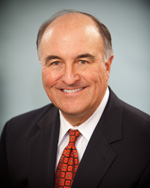
“We are Commerce.”
You’re going to see those three simple words from us a lot in the coming weeks. We are Commerce.
We are marking our transition to the Department of Commerce from the Department of Business and Economic Development today, but this isn’t just about some fresh letterhead and a new logo. (Check it out, it’s really sharp.) This is a cause for some excitement. Our move to Commerce is rooted in a sentiment that has long been pervasive through Maryland’s business community — we can be better. We should be better. We’d better be better if we’re going to compete in the 21st Century.
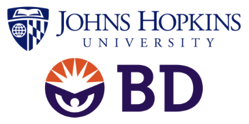
BD Life Sciences, a segment of BD (Becton, Dickinson and Company) (NYSE: BDX), a leading global medical technology company, and Johns Hopkins University (JHU) have entered into a Corporate Partners Sponsorship Agreement for the university’s business accelerator program, FastForward, which serves as a catalyst for the advancement and commercialization of an array of innovations derived both at the university and elsewhere in Baltimore.
Through the sponsorship, BD will have access to the FastForward innovation hubs including FastForward East in the John G. Rangos Sr. Building located in close proximity to the Johns Hopkins School of Medicine, Bloomberg School of Public Health and Johns Hopkins School of Nursing, as well as the flagship hospital. As a FastForward sponsor, BD will support programs that can accelerate business startup efforts, host social networking events, hold round-table discussions and workshops, and offer lectures on areas likely to be of interest to the startups.
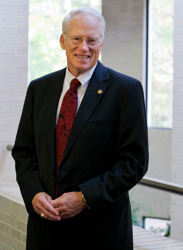
The University of Maryland today announced that the Board of Regents of the University System of Maryland (USM) has approved the naming of UMD’s Mathematics building in honor of William E. “Brit” Kirwan. His highly distinguished 51-year career in public higher education includes 13 years as USM Chancellor and 35 years at the University of Maryland, where he rose from assistant professor of mathematics to department chair and eventually to UMD president.
The Mathematics building located on Campus Drive will be named William E. Kirwan Hall.
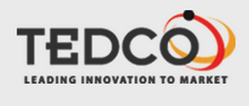
Among a host of new laws that took effect in Maryland on Thursday is a measure that transfers control of the Maryland Venture Fund to the purview of TEDCO.
The changes result in a consolidation of two of the state’s largest early-stage economic development arms under TEDCO, a quasi-public agency that makes investments in startups.

University of Maryland Research Park today takes home top honors as the Association of University Research Parks' 2015 Outstanding Research Park, at the AURP Annual Awards of Excellence, hosted by Buffalo Niagara Medical Campus. This award program recognizes the achievements of outstanding university research parks and those who direct them, and encourages the development of best practices.
The UM Research Park is a public-private partnership between Corporate Office Properties Trust and the University of Maryland (UMD). UMD works with all Research Park companies to provide synergistic and collaborative opportunities. The Research Park offers locations from incubator space for start up companies to build-to-suit options for larger technology clients.

The Kavli Foundation and its university partners announced this morning the founding of three new neuroscience institutes, including one at Johns Hopkins. The new Kavli Neuroscience Discovery Institute at The Johns Hopkins University, expected to launch in early 2016, will bring an interdisciplinary group of researchers together to investigate the workings of the brain.
The Kavli Neuroscience Discovery Institute, to be funded by a joint $20 million commitment by Kavli and Johns Hopkins, is designed to integrate neuroscience, engineering, and data science—three fields in which the university has long excelled—to understand the relationship between the brain and behavior.

Join us for the Illumina Accelerator reception at ASHG. Meet and greet company leaders and industry peers to learn about new opportunities for your genomics startup.
Date: Tuesday, October 6
Time: 6:45 PM–8:30 PM
Location: Illumina Lounge Baltimore Convention Center

DuPont has entered into a license and collaboration agreement with The Johns Hopkins University to commercialize a special garment from Johns Hopkins for the protection of people on the front lines of the Ebola crisis and fatal infectious disease outbreaks in the future. DuPont plans to launch the garment in markets during the first half of 2016.
DuPont has been providing special garments for over 40 years to cater to the safety and protection issues of industrial and healthcare workers. Hence, this alliance will enable the garment to gain faster and wider access to the market. According to the agreement, Johns Hopkins will support DuPont in assessing the sample garments produced by the latter and further help prepare information for users. DuPont, on the other hand, will take care of the commercialization of the garment. Further terms of the agreement were kept under wraps.

Switzerland's Roche has moved into pole position in the race to launch the world's first treatment for progressive multiple sclerosis but smaller players are working hard on rival approaches.
While there are a number of treatments for relapsing remitting MS, the most common form of the disease, there are no approved drugs for progressive MS, which is marked by steadily worsening symptoms.

The National Institutes for Health is trying to commercialize its inventions by licensing them out, a new Federal Register notice shows.
The technology available for licensing includes a mobile app that monitors users' psychological health by asking them questions throughout the day, as well as research that could be useful in the treatment of cancers.
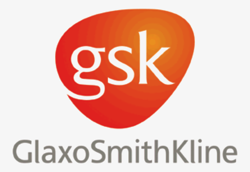
UK drug major GlaxoSmithKline (LSE: GSK) has created an Immunology Network, aiming to link GSK’s work to that of academic scientists focusing on immunology research.
The company is already working with a board of academics who are experts in immunology, and is launching the Immunology Catalyst as a new phase of this initiative. Researchers from GSK will learn new skills from external immunology experts, and these academics will be able to continue their own research while having access to GSK’s technology and learning about pharma research and development. Over the next year, six experts are expected to set up research labs at the GSK facility in Stevenage, UK. After the formal sabbatical has come to an end, collaboration will continue between GSK and the academics.

Baltimore education technology company Citelighter and data analysis firm Yet Analytics were crowned the winners of the Beta City pitch competition.
The pitch day was the kickoff event for Beta City, the Oct. 1 entrepreneurship showcase organized by Betamore and Plank Industries, Under Armour CEO Kevin Plank’s private investment arm. Beta City also served as the public debut for Plank Industries’ City Garage, the 133,000-square foot former city bus garage converted to an innovation hub for Under Armour and technology startups.

This week Alexandria Real Estate Equities, Inc. (NYSE: ARE), the largest and leading office REIT uniquely focused on collaborative science and technology campuses in urban innovation clusters, hosted Converge at Alexandria at the Alexandria Center® for Life Science – New York City. Converge at Alexandria is a quarterly thought leadership series that brings together stakeholders from across the disease continuum to engage in provocative discussions around key topics at the intersection of life science, healthcare and technology. By convening academic and industry experts, community leaders, physicians, patients, philanthropists and other advocates, Converge at Alexandria aims to bring these key issues to the forefront to catalyze new collaborations and partnerships. Surrounded by world-renowned academic and medical institutions, leading scientific talent, top-tier investment capital and an emerging commercial life science industry, New York City provides a unique backdrop for the Converge community to explore the intersection of life science, healthcare and technological innovation.

On Sept. 30, former U.S. Department of Health and Human Services Chief Technology Officer Bryan Sivak announced on Twitter that he has joined the Robert Wood Johnson Foundation as an entrepreneur-in-residence.
Sivak became the CTO for D.C. in 2009 before becoming the CIO of Maryland and then CTO for DHHS. Sivak announced his departure from DHHS earlier this year.

AccelerateBaltimore received new funding that will allow a startup in next year’s class to receive additional funding when the company completes the program.
The accelerator, which is run by the Emerging Technology Centers, awards six startups with $25,000 in funding as part of the program. New in 2016, one startup will receive an additional $100,000 in funding.
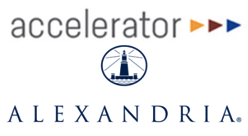
Accelerator Corporation, a leading life science investment and management firm, today announced that it has secured an additional $11.7 million in new investment commitments, bringing the final Accelerator IV closing to an oversubscribed $62.8 million. This final closing includes new strategic investments from AbbVie, WuXi PharmaTech, and Watson Fund. These new investors join the previously announced Accelerator IV syndicate, which includes Alexandria Venture Investments, ARCH Venture Partners, Eli Lilly and Company, Harris & Harris Group, Inc., Johnson & Johnson Innovation – JJDC, Inc., The Partnership Fund for New York City, Pfizer Venture Investments and WRF Capital.

Big pharma has a big public perception problem among Americans, according to Gallup poll results released September 14. Of more than 1,000 Americans polled, 43% held an unfavorable view of the industry, compared with just 35% who view pharma favorably. Pharma ranks 23rd of 25 industries for which Gallup solicited opinions; the federal government finished dead last.
Investors, however, hold a more mixed view of traditional drug developers. While shares for most biotechs have zoomed, pharma giants are almost as likely to have seen their total values of all outstanding shares—their “market capitalization”—shrink as grow over the past year. Four of 10 companies appearing on GEN’s List of Top 10 Pharma Firms of 2014 (GlaxoSmithKline, Johnson & Johnson, Merck & Co., and Roche) showed smaller market cap totals on this year’s edition of the List compared with last year. Another five companies, however (AbbVie, Bayer, Novartis, Pfizer, Sanofi) showed year-over-year increases in their market caps, which are computed as shares times current market price.

With $15 million in hand, TCP Venture Capital partners Christopher College and Stuart Sutley look to foster Baltimore’s budding technology scene by investing in 10 to 12 new Baltimore-based startups within the next 12 to 18 months, College tells DC Inno. Those companies, who may be caught between a seed and series A funding round, could each receive anywhere between a few hundred thousand to a few million dollars to help accelerate their growth.
The Columbia, Md.-based institutional investors have raised a new fund, called the Propel II fund, to capitalize off the success of their previous fund, the Propel I fund, which helped support a number of high growth potential Baltimore tech companies—including edtech powerhouse CiteLighter, rising cybersecurity star RedOwl Analytics and eco-friendly product developer Bambeco.
Chris College

Readers of the NIH Director’s Blog know how excited I am about the potential of precision medicine for revolutionizing efforts to treat disease and improve human health. So, it stands to reason that I’m delighted by the positive reactions of researchers, health professionals, and the public to a much-anticipated report from the Precision Medicine Initiative Working Group of the Advisory Committee to the NIH Director. Topping the report’s list of visionary recommendations? Build a national research cohort of 1 million or more Americans over the next three to four years to expand knowledge and practice of precision medicine.
When the president announced PMI during his 2015 State of the Union address, he envisioned a precise new era in medicine in which every patient receives the right treatment at the right time — an era in which health care professionals have the resources at hand to take into account individual differences in genes, environments, and lifestyles that contribute to disease. To achieve this, PMI’s national research cohort would tap into recent advances in science, technology and research participation policies to build the knowledge base needed to develop individualized care for all diseases and conditions.

Thursday, October 15, 2015, 05:00pm - 07:00pm
We are excited to be returning to Growlers in Gaithersburg on October 15th for BioBuzz MoCo with our Sponsor The Biomedical Research Institute(BRI). BRI is a nonprofit organization committed to improving global health through a variety of research and service activities. For over 60 years BRI has been an integral component of the federal government's aim to reduce the global health burden posed by infectious diseases in developing nations. BRI has made significant contributions focusing initially on cryobiology, subsequently on malaria, and more recently on schistosomiasis, a deadly parasitic disease with over 200 million people affected and a quarter million deaths a year.

Thursday, October 15, 2015, 06:00pm - 07:30pm
Hear from the Executive Director of the renowned BIRD Foundation, as well as representatives from other funding sources including OurCrowd (crowdfunding platform), the State of Maryland's Technology Development Corporation (TEDCO), and a venture capitalist. Learn what these entities look for when awarding funding and tips to help you secure the funding that you need.
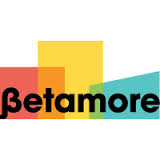
A giant sign reading “Made in America” loomed over Shelly Blake-Plock. In front of him was a group of investors from some of Maryland’s top venture capital firms.
But the founder of Baltimore big data firm Yet Analytics was looking beyond both the state and the country.
“I want to create a big company that makes big change in the world,” he said emphatically.

As a New York City based entrepreneur, I've been excited to watch as the Big Apple has become the epicenter for innovation on the East Coast. While I mentioned that another industry might be having the biggest 2015, funding for healthcare startups have grown significantly over the past two years. According to a report by Rock Health, over $2 billion has already been invested into health care tech companies this year with a lot of this activity happening locally. In New York, there's an extremely diverse mix of innovators including accelerators, startups and hospitals.
Here's a glimpse of some great organizations that are paving the way for the future of health care.

Before Nick Hanauer was a Seattle billionaire and political activist, he was an early investor in Amazon. Now, he says the city’s next big thing is curing cancer.
Hanauer called out Juno Therapeutic’s (Nasdaq: JUNO) innovative immunotherapy cancer treatments during the GeekWire Summit in Seattle on Thursday. The treatments involve engineering patients’ cells to better battle disease and infusing those blood cells back into the body.
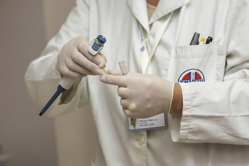
The U.S. health care system is one in which price gouging is completely legal and cost inflation is out of control. According to a recent study from the Institute of Medicine, 30% of U.S. health care bills are waste, and if food-price inflation since 1945 matched that of health care, today we would be paying $55 for a dozen eggs. New doctors enter systems where financial incentives are in treating people as needed rather than keeping them healthy, and where legacy programs have no good reason to change.
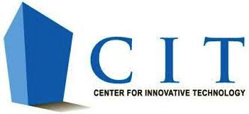
Without the Center for Innovative Technology (CIT), Leesburg-based Disrupt6 wouldn’t exist. Just two years ago Disrupt6 co-founder and CEO Joe Klein was a defense contractor with more than 30 years of cybersecurity experience — he battled his first hacker in the 1980s. But Klein had never been able to get his own business off the ground until he was asked last year to pitch his business idea as part of CIT’s MACH37 initiative to promote cybersecurity startups.

Remember Sean Parker, the co-founder of Napster who went on to be founding president of Facebook and then the investor who brought Spotify to the U.S.? He’s now putting his considerable wealth into immuno-oncology, and apparently doing it without his usual “disruptive” style.
The normally brash Parker — the one played by Justin Timberlake in “The Social Network” — has, according to FierceBiotech’s Damian Garde, been doing his homework on T cells and is ready to put his money where his mouth once was. “My role is not to be a disrupter but to be a consistent, long-term funder,” Parker said alongside two Memorial Sloan Kettering Cancer Center researchers, discussing the “new face of cancer.”
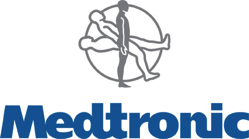
Medtronic, the international medical technology and services company, announced that it has received a grant from the Israeli government to launch a digital medicine incubator in the country. Medtronic will reportedly work together with IBM, Pitango Venture Capital and Rambam Hospital in Haifa to establish an incubator called “HealthO2″ that will help digital health companies to receive funding and access. “HealthO2″ will offer companies between $500,000-800,000 in initial funding to develop their ideas. Medtronics recently invested $2 million in Israeli company DreaMed Diabetes, acquiring the company’s artificial pancreas technology.

Health-focused restaurants and retailers, as well as technology-centered businesses, will someday be a part of Inova Health System's Center for Personalized Health, officials said this week as they prepare to take possession of the 117-acre former Exxon Mobil campus in Merrifield.
All ideas are on the table as Inova imagines what its new "health-focused" concept should look like, said center CEO Todd Stottlemyer during an exclusive tour of the facility.

It was like any other contest where startup founders pitch their ideas to a skeptical audience, except the majority of the people doing the pitching as well as in the audience had either gray or no hair.
Most of the 50-plus people gathered in a conference room at Boston’s Harborside Hotel late last week were seasoned biotech executives and consultants, or people with years of experience trying to develop promising academic discoveries. And the “pitch contest” came at the end of a 27-hour session focused on solving a single, looming question that’s haunted the life sciences for decades: How to make sure that the most promising such discoveries make it into the hands of a company with the knowledge and financing to oversee its development.

The use of a patient's or tumor's DNA sequence to diagnose/characterize a disease and select or discover drugs that have the highest likelihood of response with least toxicity is one way of broadly defining Precision Medicine. Although most doctors would agree that medicine is far from precise, President Obama's state of the union address in early 2015 made 'precision medicine' a household phrase drawing public attention to this burgeoning field. Mayo clinic has adopted the phrase individualized medicine in naming its world class center at Rochester, MN. Some even refer to it as genomic medicine but I like 'personalized medicine' (PM) better. Major healthcare organizations in US and around the world are early adopters and are already practicing PM.